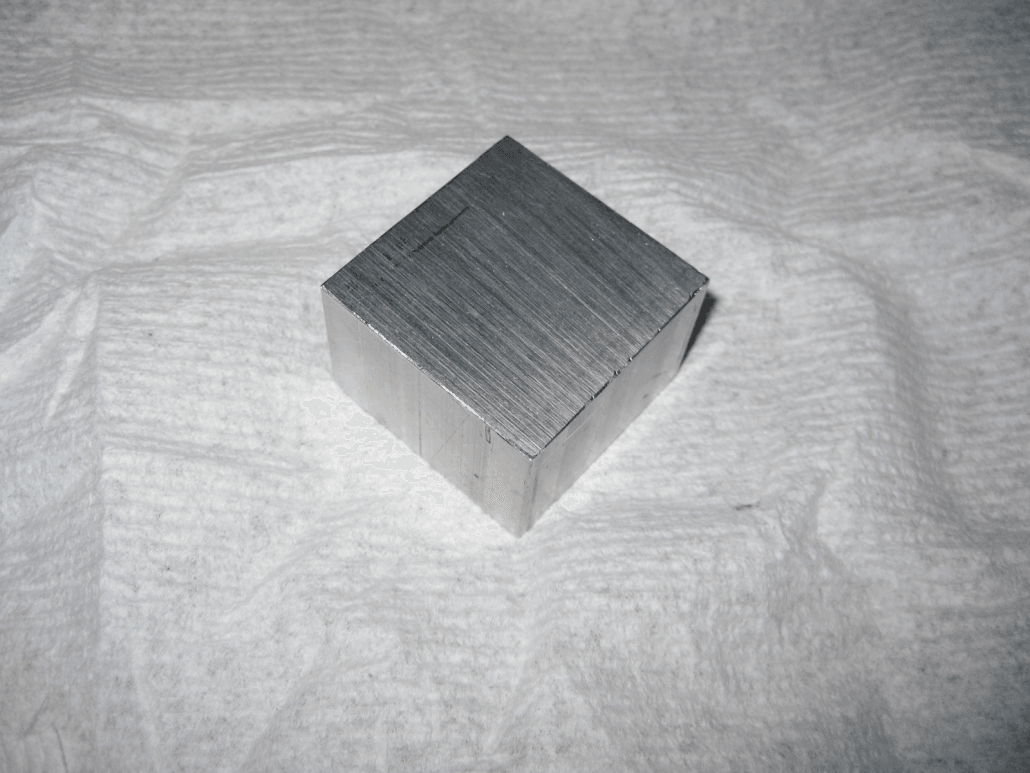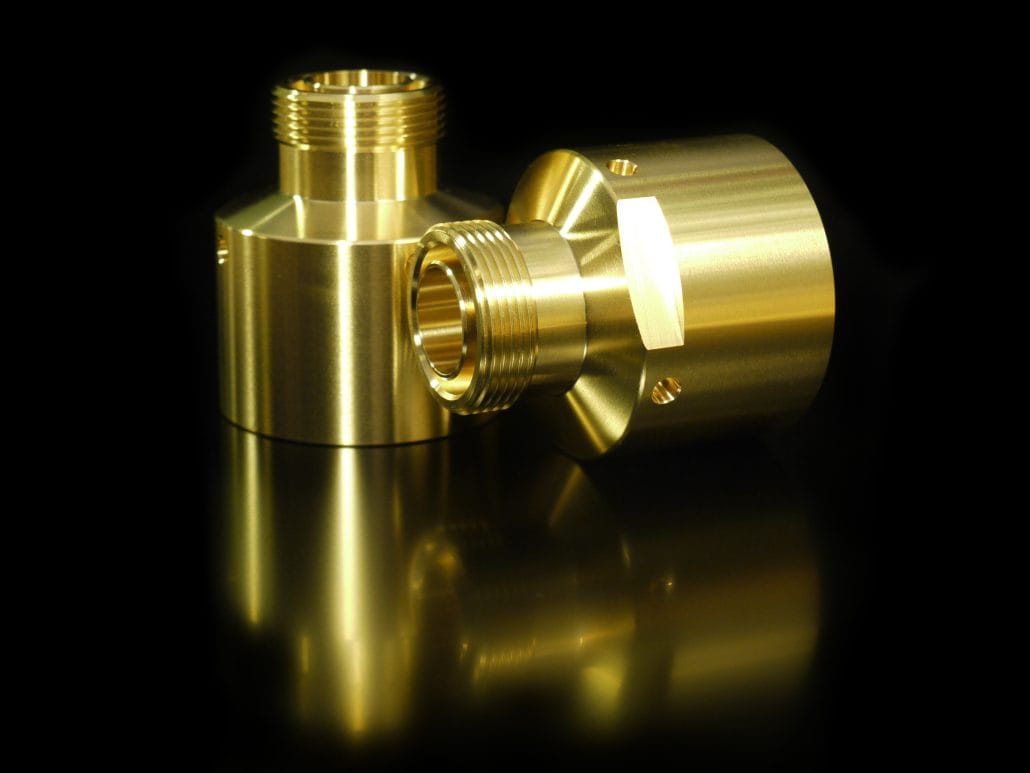General CNC machining usually refers to the digital control of precision mechanical machining by computers, using computers to control the movement and operation of machine tools, such as CNC machining lathes, CNC machining milling machines, CNC machining boring and milling machines, etc. To accurately process various materials.
The names of CNC machining may vary in different regions. For example, CNC is referred to as “computer gong” or “CNCCH” in China, while in other regions it may be referred to as “CNC machine tools” or “CNC machining centers”
This article will introduce the technologies and feasible materials for CNC machining. Let’s get started.
Commonly used metal materials for CNC machining
Different applications require different types of materials, and Longsheng can provide CNC machining services for users. The main metal materials processed by CNC include the following:

1.Aluminum alloy 6061
6061 aluminum alloy is a high-quality aluminum alloy product produced through heat treatment and pre stretching process. Although its strength cannot be compared to the 2XXX or 7XXX series, it has many magnesium and silicon alloy characteristics.
| Characteristic | Description |
|---|---|
| Strength | Moderate strength, not as high as 2XXX or 7XXX series alloys but sufficient for various applications. |
| Density | 2.70 g/cm³ |
| Machinability | Excellent, easy to cut, mill, drill, and shape. |
| Welding Properties | Excellent, easy to weld using TIG, MIG, etc. |
| Corrosion Resistance | High, performs well in humid, wet, and chemical environments. |
| Toughness | Relatively high, able to withstand fracture. |
| Post-Machining Stability | Stable, does not deform easily after machining and heating. |
| Material Density | Typically defect-free, enhancing overall quality and performance. |
| Polishing Capability | Easily polished and coated, providing a smooth surface. |
| Ease of Anodizing | Can achieve various aesthetic finishes through multiple methods. |
| Oxidation Performance | Excellent, forms a uniform and durable oxide layer. |
2.Aluminum alloy 7075
7075 aluminum alloy is a cold treated forging alloy, and its fine grain structure makes it excellent in deep drilling, improving the wear resistance of tools and making thread rolling more excellent, far surpassing soft steel. It is considered one of the most powerful aluminum alloys in commercial applications.
| Characteristic | Description |
|---|---|
| Density (g/cm³) | 2.78 g/cm³ |
| Strength | High-strength alloy, especially suitable for applications requiring high strength. |
| Young’s Modulus (GPa) | Approximately 71 |
| Fracture Toughness (MPa·m^0.5) | 43 |
| Melting Point (℃) | Approximately 480 |
| Coefficient of Thermal Expansion (10^-6/℃) | 23.6 (within the range of 20-100℃) |
| Electrical Conductivity (% IACS) | 34.7 (as a percentage of IACS, International Annealed Copper Standard) |
| Magnetism | Non-magnetic |
3.Pure copper
Pure copper (also known as purple copper) is a ductile metal with excellent conductivity and a rose red surface It is not pure copper, it contains 99.9% copper and some other elements are added to improve the surface and properties.
Copper has a conductivity and thermal conductivity second only to silver, and is widely used in the production of conductive and thermal conductive materials. Red copper has good corrosion resistance in the atmosphere, seawater, certain non oxidizing acids (hydrochloric acid, dilute sulfuric acid), alkali, salt solutions, and various organic acids (acetic acid, citric acid), and is used in the chemical industry.

It has good weldability and can be processed into various semi-finished and finished products through cold and thermoplastic processing. In the 1970s, the production of red copper exceeded the total production of other types of copper alloys.
| Characteristic | Description |
|---|---|
| Density (g/cm³) | 8.92 g/cm³ |
| Strength | Typically low, it is a relatively soft metal. |
| Young’s Modulus (GPa) | Approximately 117 |
| Fracture Toughness (MPa·m^0.5) | 40 (for pure copper) |
| Melting Point (℃) | Approximately 1,984 |
| Coefficient of Thermal Expansion (10^-6/℃) | 16.6 (within the range of 20-100℃) |
| Electrical Conductivity (% IACS) | Very high, approximately 100% (as a percentage of IACS, International Annealed Copper Standard) |
| Magnetism | Non-magnetic |
| Corrosion Resistance | Exhibits good corrosion resistance, especially in water and atmospheric environments. |
4.brass
Brass is a copper zinc alloy, and brass composed of copper and zinc is called ordinary brass.
It has high strength, high hardness, and strong resistance to chemical corrosion. The mechanical properties of cutting processing are also outstanding.
Brass has strong wear resistance. Special brass, also known as special brass, has high strength, high hardness, and strong resistance to chemical corrosion. The mechanical properties of cutting processing are also outstanding. Seamless copper pipes made of brass are soft and have strong wear resistance.
| Characteristic | Description |
|---|---|
| Density (g/cm³) | 8.53 – 8.73 g/cm³ |
| Strength | Exhibits moderate to high strength, higher than pure copper. |
| Young’s Modulus (GPa) | Approximately 96 – 120 |
| Fracture Toughness (MPa·m^0.5) | 10 – 35 (varies depending on the specific brass alloy). |
| Melting Point (℃) | Approximately 900 – 950 |
| Coefficient of Thermal Expansion (10^-6/℃) | 19 – 20 (within the range of 20-100℃, depending on the alloy type). |
| Electrical Conductivity (% IACS) | High, typically in the range of 26-45% (varies depending on the alloy type). |
| Magnetism | Non-magnetic |
| Corrosion Resistance | Exhibits good corrosion resistance, resistant to water and general chemical corrosion. |
5.45 # steel
45 steel is a term in GB, also known as “oil steel”, which has high strength and good machinability.
It has high strength and good machinability. After appropriate heat treatment, it can achieve a certain degree of toughness, plasticity, and wear resistance. The material source is convenient, and it is suitable for hydrogen welding and argon arc welding.
| Characteristic | Description |
|---|---|
| Density (g/cm³) | 7.85 g/cm³ |
| Strength | Moderate strength, suitable for general engineering applications. |
| Young’s Modulus (GPa) | Approximately 200 |
| Fracture Toughness (MPa·m^0.5) | Varies depending on specific heat treatment and alloying. |
| Melting Point (℃) | Approximately 1,480 |
| Coefficient of Thermal Expansion (10^-6/℃) | Approximately 12.1 (within the range of 20-100℃) |
| Electrical Conductivity (% IACS) | Typically low, as it is a metal, but not used for electrical conduction purposes. |
| Magnetism | Exhibits magnetism and can be magnetized. |
| Corrosion Resistance | Typically requires anti-corrosion coatings or treatments to enhance corrosion resistance. |
6.40cr steel
40Cr is the standard steel grade of GB in China, and 40Cr steel is one of the most widely used steels in the mechanical manufacturing industry.
Due to its excellent comprehensive mechanical properties, good low-temperature impact toughness, and low notch sensitivity. The hardenability of steel is good, and this steel is suitable for cyanide and high-frequency quenching treatment in addition to quenching and tempering treatment. Good cutting performance.
| Characteristic | Description |
|---|---|
| Material Type | Alloy Steel |
| Main Components | Iron, Carbon, Chromium |
| Strength | High strength with a tensile strength of approximately 600-800 MPa |
| Hardness | Typically in the range of 28-35 HRC, adjustable through heat treatment |
| Heat Treatment | Hardness and strength can be adjusted through heat treatment processes such as quenching and tempering |
| Machinability | Excellent machinability, suitable for machining operations such as cutting, milling, drilling, etc. |
| Weldability | Good weldability, can be joined using various welding methods |
| Corrosion Resistance | 40Cr steel exhibits moderate corrosion resistance, but caution is advised in humid or corrosive environments |
| Application Areas | 40Cr steel is widely used in the manufacturing of components such as bearings, gears, shafts, threaded rods, and other mechanical parts |
7.Q235 steel
Q235 steel is a type of carbon structural steel, and the Q in its steel grade represents the yield strength. Normally, this steel is used directly without heat treatment.
As the thickness of the material increases, its yield value decreases. Due to its moderate carbon content, good overall performance, and a good combination of strength, plasticity, and welding properties, it has the widest range of applications.
| Characteristic | Description |
|---|---|
| Material Type | Carbon structural steel |
| Strength | Tensile strength approximately 375-500 MPa |
| Yield Strength | Yield strength approximately 235 MPa |
| Density | Density approximately 7.85 g/cm³ |
| Elastic Modulus | Elastic modulus approximately 200 GPa |
| Melting Point | Melting point approximately 1425-1540°C |
| Thermal Expansion Coefficient | Thermal expansion coefficient approximately 11.7 x 10^-6/°C |
| Magnetic | Exhibits ferromagnetic properties |
| Machinability | Easily machinable and weldable |
| Corrosion Resistance | Good resistance to most non-oxidizing acids and alkaline media |
| Applications | Structural steel, construction material, manufacturing industrial components, etc. |
CNC machining processes for different materials
Metal materials are a common type of material in CNC machining, including steel, aluminum, copper, stainless steel, etc. CNC machining processes for metal materials typically include:

Drilling and reaming: Metal materials typically use drilling and reaming techniques, with hard alloy cutting tools suitable for high hardness metals and high-speed drills suitable for soft metals such as aluminum.
Milling and turning: For metal cutting, milling machines and lathes are usually used. Hard alloy tools have better milling effects on hard metals such as stainless steel, while high-speed tools are more suitable for soft metals such as aluminum.
Welding and cutting: CNC cutting and welding processes for metal materials typically require high-power laser or plasma cutting equipment.
Surface treatment: Metal materials usually require surface treatment, such as sandblasting, polishing, or electroplating, to improve appearance and corrosion resistance.
conclusion
With the continuous development of material science and numerical control technology, processing techniques will also continue to improve to meet the needs of different materials. Therefore, manufacturers and engineers should constantly update their knowledge to maintain competitiveness in the field of CNC machining.
FAQ
CNC (Computer Numerical control) machining technology is an automated manufacturing method in which the movement of machine tools and tools is controlled by computers to precisely cut and shape materials. Its key benefits include high precision, high efficiency, complex parts manufacturing, repeatability, automation and flexibility. CNC machining is suitable for a variety of materials, from metals to plastics and composites.
The choice of materials depends on the requirements and application of the project. First, consider mechanical properties such as strength, hardness and corrosion resistance to ensure the material meets the project needs. Then, consider cost, availability, and processability. Different materials are suitable for different uses, for example, metals are often used for structural parts, while plastics are suitable for lightweight components and insulation applications. The final material selection needs to take these factors into account.
In order to optimize material utilization, the following measures can be taken:
1.Material planning: Rationally plan the layout of parts on materials to reduce waste and tailoring.
2.Nested parts: Multiple parts are arranged as closely as possible on the material to minimize waste.
3.Intelligent cutting path: Use CNC programming software to optimize the cutting path, reduce unnecessary cutting and reduce material waste.
4.Material recovery: The cut waste is recycled to reduce environmental impact and costs.


